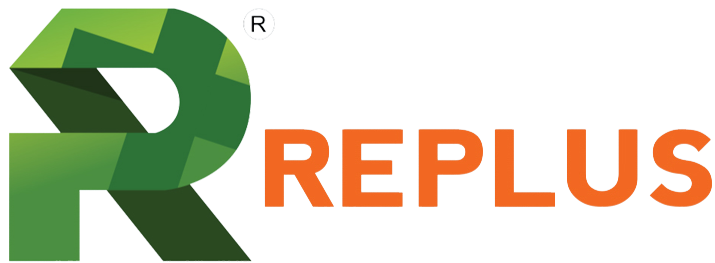Have you ever dreamt of leveraging your expertise and contributing to an organization’s success at the highest level? Becoming a board member offers a unique opportunity to provide strategic guidance, shape the future of an organization, and make a real difference. This comprehensive guide will equip you with how to get on a board and provide the knowledge and strategies you need to land your first board seat. So, buckle up and get ready to unlock the secrets about how to become a board member successfully!
What is a Board Member?
A board member, also sometimes referred to as a director, is an individual who is elected or appointed to serve on the governing body of an organization. This board of directors exists for businesses, non-profit organizations, and even some government agencies. Board members hold a position of significant responsibility. They provide oversight and guidance to the organization’s leadership team, typically the CEO and executive team.
In essence, board members act as a bridge between the organization’s stakeholders such as owners, shareholders, donors, and its day-to-day operations. They bring their expertise and experience to the table to ensure the organization is making sound decisions for long-term success.

The Responsibilities that a Board Member Should Do
The specific responsibilities of a board member will vary depending on the size and type of organization they serve. However, the core principles of governance, financial oversight, and strategic planning apply to all boards. As a result, this knowledge could help you develop essential abilities for the how to become a board member path.
how-to-become-a-board-member-2
Governance
- Setting Strategic Direction: Board members collaborate with management to define the organization’s long-term vision, mission, and goals. They identify key opportunities and challenges and allocate resources accordingly.
- Making Major Decisions: Board approval is required for critical decisions that significantly impact the organization’s future. This can include approving budgets, mergers & acquisitions, executive compensation, and major capital expenditures.
- Ensuring Ethical & Legal Compliance: Board members have a fiduciary duty to act in the best interests of the organization and hold management accountable for ethical and legal conduct. This involves overseeing risk management practices and ensuring financial reporting accuracy.
- Board Development: Effective boards continuously evaluate their performance and identify areas for improvement. Board members may participate in recruiting new members, attending board training, and ensuring the board operates efficiently.
Financial Oversight
- Financial Management: Boards are responsible for overseeing the organization’s financial health. This includes reviewing budgets, financial statements, and audit reports. They ensure proper financial controls are in place and identify potential financial risks.
- Fundraising (for some organizations): Many non-profits and some for-profit ventures rely on board members to assist with fundraising efforts.

Strategic Planning
- Developing Long-Term Strategy: Boards work with management to develop a strategic plan that outlines the organization’s path to achieving its goals. This plan typically includes a defined timeframe and identifies key performance indicators (KPIs) for measuring progress.
- Monitoring Performance: Boards regularly review the organization’s performance against its strategic plan and established KPIs. They assess progress and make adjustments to the strategy as needed.
Significant Skills for a Board Member
Successful board members need a blend of hard skills and soft skills to effectively fulfill their responsibilities. Here’s a breakdown of some significant ones to help you know how to become a board member.
Technical Skills
- Financial Management: Understanding financial statements, budgets, and risk management is crucial for overseeing the organization’s financial health.
- Industry Knowledge: Having a strong understanding of the industry the organization operates in allows for informed decision-making.
- Legal and Regulatory Compliance: Knowledge of relevant laws and regulations helps ensure the board acts within legal boundaries.
Strategic Skills
- Strategic Thinking: The ability to analyze information, identify trends, and develop long-term plans for the organization’s success.
- Decision Making: Boards routinely make critical decisions, so strong analytical skills and the ability to weigh options are essential.
- Problem-Solving: Boards will encounter challenges, so effective problem-solving skills are necessary to navigate these situations.

Behavioral Skills
- Communication: Excellent communication skills are key for interacting with fellow board members, management, and stakeholders.
- Leadership: Boards provide guidance and direction, so strong leadership qualities are valuable.
- Teamwork: Boards function best when members collaborate effectively.
- Critical Thinking: The ability to analyze information objectively and ask insightful questions is crucial.
- Integrity and Ethics: Board members hold positions of trust, so high ethical standards and integrity are essential.
Additional Growing Needs
- Digital Skills: Understanding technology’s role in the organization and the broader landscape is increasingly important.
- ESG Expertise: Environmental, Social and Governance (ESG) factors are gaining prominence, so some boards may seek members with this knowledge.
- Positive Future Thinking: The ability to anticipate future trends and challenges can benefit the board’s decision-making.
The Conditions to Become a Board Member
The conditions that you should know to support you on the how to become a board member path and develop your values.
Legal Requirements
- Age: Some organizations may have a minimum age requirement for board members.
- Citizenship: In some cases, there might be citizenship requirements for board membership.
- Disqualifications: Certain legal or financial disqualifications might prevent someone from serving on a board.
Organizational Requirements
- Skills & Experience: Boards seek members with skills and experience relevant to their needs (e.g., finance, marketing, industry expertise).
- Time Commitment: Board service requires a significant time commitment for attending meetings, reviewing materials, and participating in committee work.
- Financial Stake (Public Companies): For publicly traded companies, board members may be required to own a certain amount of company stock to demonstrate alignment with shareholder interests.
- Diversity: Many organizations are increasingly seeking diverse boards in terms of background, experience, and perspectives.

Unwritten Conditions
- Reputation and Integrity: Board members are expected to have a strong reputation for ethical conduct and sound judgment.
- Passion and Alignment: Genuine interest in the organization’s mission and alignment with its values are crucial for effective board service.
- Strategic Thinking: The ability to contribute to the organization’s long-term success through strategic thinking is highly valued.
- Network and Relationships: Strong connections within the relevant industry or community can be beneficial, but not always mandatory.
Additional Considerations
- Board Member Term Limits: Some boards have term limits to ensure a healthy rotation of members and fresh perspectives.
- Board Member Compensation: Compensation for board service varies depending on the organization’s size and financial situation.
How to Become a Board Member in 6 Simple Steps
You always consider how do you become a board member. That’s a great roadmap for how to get on board! Here’s a breakdown of each step with some additional insights
Identify your Passion and Expertise
To discover how you can make the greatest contribution, start by reflecting on your passions and pinpointing your most valuable skills. This self-assessment isn’t just about finding a position you enjoy; it’s about aligning your strengths with the organization’s needs. By understanding both, you can identify roles where your skills truly shine and where you can make a significant impact.
Targeted Research & Networking
Before diving headfirst into applications, take a strategic step back. Researching potential board positions equips you with valuable knowledge. Learn about the typical duties, minimum qualifications, and expectations for these roles. This intel helps you identify the perfect fit for your skills and interests.
Furthermore, networking with current board members and industry leaders is an investment in your future. These connections offer valuable insights into the boardroom environment and can open doors to potential opportunities. By building relationships with key players, you position yourself as a strong candidate and gain access to a network that can support your success.

Develop Your Board Qualifications
To ensure successful board engagement and leadership, the board seeks candidates with relevant industry experience. While extensive experience isn’t always mandatory, you should demonstrate a proven track record in your field.
Uncover Board Opportunities
Many aspiring board members embark on a journey of self-improvement that lasts months or even years. This involves honing their skills, expanding their network, and actively engaging in personal development. Investing this time upfront significantly increases your chances of landing a coveted board seat. Once you’re confident your experience and expertise make you a strong candidate, you can begin your formal search.
Existing board positions within your current organization can be prime targets. The decision-makers are already familiar with your contributions and dedication to the organization’s success. Network with current board members to get a heads-up on potential openings. Being among the first to express interest in an unadvertised position can give you a significant edge. If your current organization doesn’t have openings, consider similar businesses seeking external board members. While internal recruitment is often preferred to ensure familiarity with the organization, your unique perspective and skills can be valuable assets.

Unveiling the Ideal Candidate: The Board Interview Process
Selecting the right individuals for your board requires a thorough vetting process. Board interviews play a crucial role, allowing decision-makers to delve deeper than the application and assess a candidate’s fit beyond their qualifications on paper. The interview format can vary. Some boards interview all applicants, while others select a shortlist based on initial applications. The number of applicants also influences the process.
Beyond interviews, additional steps may be included, such as networking events, mock meetings, or sample projects. These activities provide valuable insights into a candidate’s problem-solving skills and boardroom presence. Participating actively and demonstrating professionalism are key throughout this stage.
Once all assessments are complete, the board and leadership team come together to discuss each candidate’s strengths, potential concerns, and overall suitability for the open positions. This collaborative discussion ensures the selection of the best possible fit for the board and the organization’s future.

Strong Board Starts to Begin with Orientation
Here is the last step about how to become a board member. A well-designed orientation program sets new board members up for success. It dives deep into your organization’s mission, goals, and inner workings – policies, procedures, and even compensation questions like board member pay. This comprehensive approach not only smooths the transition for new members but also mitigates the impact of losing valuable prior board members. By ensuring everyone understands their roles and responsibilities, the board can function more effectively from the get-go.
Replus.au hopes that this article can answer your questions about how to become a board member and support your career path in the future with all of the information we provided. Every step you get, every success you have!


